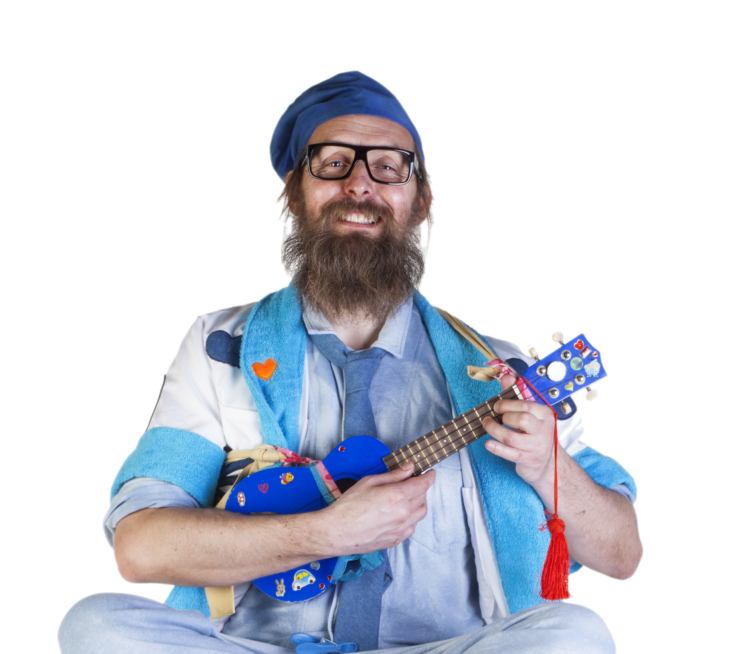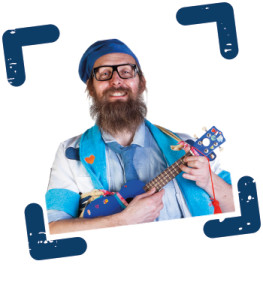24 November 2016
 Dr Jammi - Proud to Work in Healthcare
Dr Jammi - Proud to Work in Healthcare

Jamie Wood AKA Dr Jammi features in an article written by Proud to Work in Healthcare. In it, he describes his journey as a Giggle Doctor and the magical experiences with the children he meets, as he helps to bring laughter to children in hospitals, hospices and specialist care…

Why am I Proud to Work in Healthcare?
Even after all these years, I still feel nervous the night before going to work. I don’t know who I’m going to meet, what I’m going to do or what I might see. I go into extremely fragile worlds and I don’t want to be clumsy or cause any harm. The only thing I’m certain of is that I will be very moved and learn something new.
I am a Giggle Doctor for the Theodora Children’s Charity. We’re trained performers who visit children in hospital and try to provide them with a little fun and respite from the unpleasantness of being ill and stuck on a ward. Our job is to listen to, encourage and entertain the children and their families, and provide a space for them to explore their imaginative powers.
I I really do work with some extraordinary people and we learn a huge amount from each other. I
I graduated from Giggle School in 2006. I had no idea what to expect when I first started, and to be honest I came into it a little arrogantly. Having studied Fine Art and Theatre and had in my mind that I was going to make serious theatre I didn’t really feel that being a Giggle Doctor fitted with my self-image, but in time it blew me away.
The two-year training programme balances practical needs – such as hygiene, infection control and safeguarding – with performance skills, and it starts with observing an experienced Giggle Doctor at work, which I found an incredible thing to witness. I was shocked to see how the doctors could engage and then play with all the children even though they started in such different emotional places. I remember wondering how they could make it look so easy! I really do work with some extraordinary people and we learn a huge amount from each other.
One of my colleagues is a mindfulness instructor and taught me about accepting the child’s emotional state before trying to play with them. I remember going to Great Ormond Street Hospital with another colleague, Dr Bananas, and visiting a girl who was missing her mum. She was really upset and had no interest in playing, so I suggested that she wrote her mum a letter. I got a postcard and she dictated the most beautiful message, in which she told her mum how much she loved her, how she looked forward to her visits and how happy she felt when she saw her mum’s face. Dr Bananas and I were on the verge of tears. When she had finished we asked her what we should do now. “Let’s go on holiday!” she cried, and very shortly we were pretending to swim at a beach in Spain. Writing the letter had acknowledged and dealt with her homesickness and allowed her to move on from it.
Some children who don’t play immediately are simply shy. With them, I start playing on my own, talking to my puppets, playing with their toys or making a tune with my ukulele. The child is an observer, seeing that it is a safe and friendly environment. As soon as they respond in some way, with a smile or a little chuckle, I gently involve them with the game. Usually by the end they are joining in enthusiastically and we can help them create their own imaginative games. Really we are facilitators in play; our job is to open up the possibility of playing, issue an invitation to play and then follow where the child wants to go! Each Giggle Doctor does this differently and part of our training is developing our costume and character. This doesn’t stop when we qualify and we’re constantly tinkering with our ‘act’. In fact, I think about it all the time; I just find it so interesting.
I It’s amazing to see the difference that we make to the children and we hear some wonderful things from their families. I
It has changed my stage work. I used to make theatre for the art world, but since becoming a Giggle Doctor I have wanted my productions to be for everyone. Now I try to cross into the audience’s worlds, just how I have to in hospital with patients and their families..
One of the challenges in this is connecting with children of all ages. You just have to work out what the person needs at that time and communicate to them, “It’s all OK. For this moment, I can handle whatever you have for me.” I went into a ward once and met a 16-year-old girl, who was looking very anxious and immediately asked me if I’d ever had an operation. “No,” I replied, “but my mum has.” She asked me if my mum had been any different afterwards – she was worried that having surgery would change her forever in some way. I reassured her and told her about my mum, who had emerged from the operation exactly the same person she had been before (minus the problem), and my new friend seemed a lot more relaxed.
Some of the best interactions come when I can involve a doctor or nurse in the play. I find it really changes the relationship between the family and the staff. They’re generally very happy to join in, or leave us to play and come back to see the child later, although we always offer to make way for them if they do interrupt us. We’re most effective when the staff see us as part of the team for making the kids feel better.
I feel so humbled by the job. It’s amazing to see the difference that we make to the children and we hear some wonderful things from their families. We uncover hidden talents, get children moving and singing for the first time in months, and most importantly we give them some time where people aren’t focusing on their illness.
